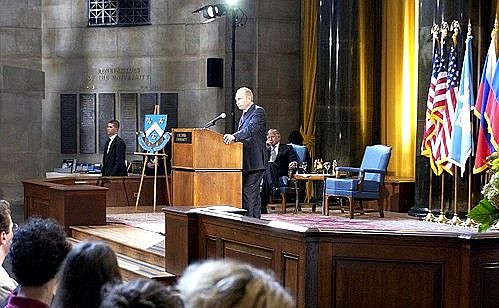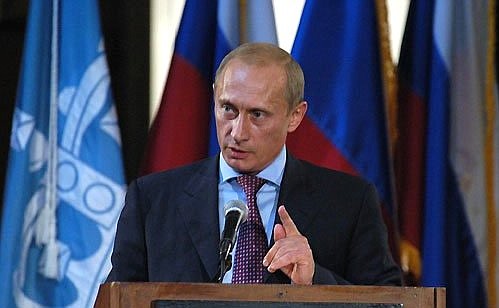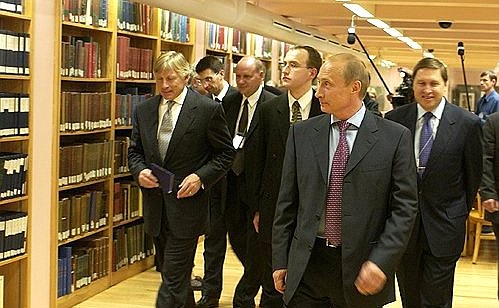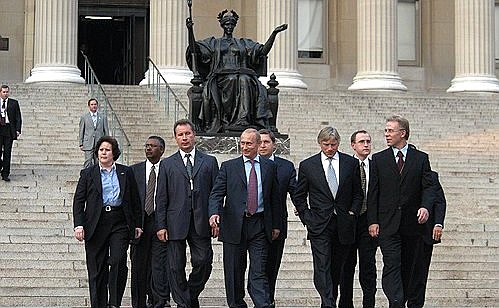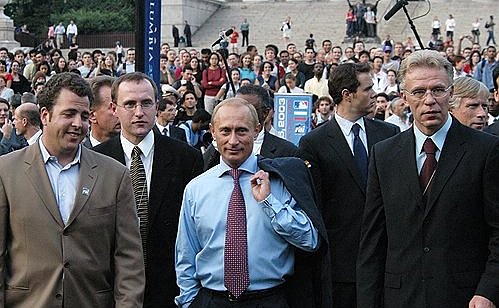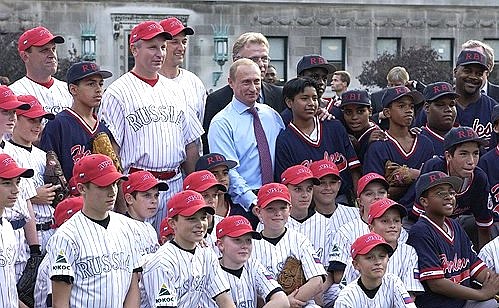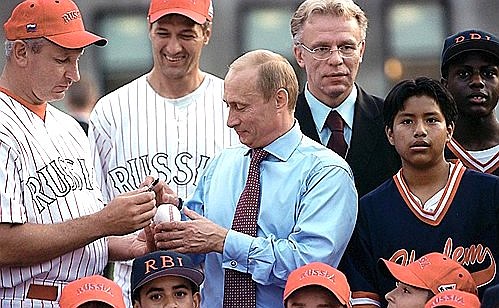The Russian leader urged those present to give up the concept of “Sovietology”. The inertia of old approaches is tenacious, the President said. The world has changed dramatically, the Soviet Union no longer exists, but still Sovietology survives.
That statement was not fortuitous: several centres at Columbia University study Russian history, politics, the Russian language and literature. About 500 students majoring in various subjects deal with Russian problems and many of them will shape Washington’s policy towards Moscow in the future.
One of the central themes of the Russian leader’s speech was the war against terror. He stressed that terrorists were out to remake the world and their main goal was to influence the consciousness of society, to instil fear and hatred. Mr Putin said that force was not the only method to combat terrorism. In addition to counter-terrorist operations, it is necessary to deploy an intellectual front in the fight against terrorism, he said.
After the speech President Putin answered a host of questions, about one-third of which were asked in Russian. The questions were about AIDS, the characteristics of the Russian language and even Vladimir Putin’s own speech, freedom of expression in Russia and various international problems.
After meeting with the students, Mr Putin took a short tour of the university. He looked at the Bakhmetyev Archive, one of the largest collections of Russian documents abroad. The President was given a copy of one of Leo Tolstoy’s letters. President Putin gave the archive a copy of a letter from Russian Foreign Minister Prince Gorchakov to the Russian envoy to the US regarding the Russian position on the American Civil War. The President also gave the archive a copy of Tsar Alexander I’s decree of 1808 appointing Andrei Dashkov (1775–1831) the first Russian Consul-General and charge d’affaires to the US.
President Putin also watched a baseball game between the Russian and American children’s teams.
